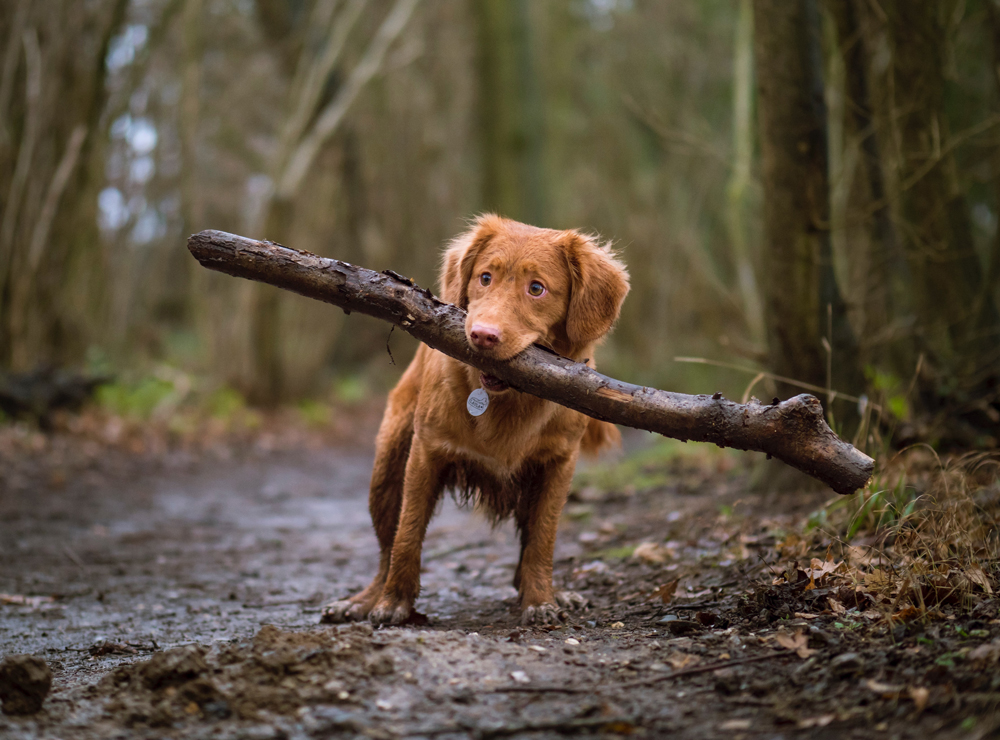This week, Dogs Trust Ireland reported that they have received eight requests every day since Christmas Day from members of the public looking to relinquish their dogs to their care. Here’s a quick reminder to appreciate these animals, writes Daisy Hickey
This week, Dogs Trust Ireland reported that they have received eight requests every day since Christmas Day from members of the public looking to relinquish their dogs to their care.
Dogs Trust Ireland now has to make an urgent appeal for foster homes to help these pups after receiving almost 300 surrender requests, a shocking 73% increase on the 172 calls made during the same period this time last year.
Why this is happening
It’s clear, according to the head of communications at Dogs Trust Ireland, Ciara Murran, that a big underlying problem is a lack of understanding of the commitment dog ownership involves. The charity also named “dogfishing”, by breeders, as a leading cause of this issue. Many owners leaving their dogs with the charity reported being told that the dog they were buying was something they weren’t: hypoallergenic, healthy, another breed, or another size. It’s obvious that a move away from buying dogs from breeders is key to prevention – i.e., adopt, don’t shop. As well as a bit of cop-on, maybe.
A big issue, too, is our recent return to work following the easing of restrictions. This has left many Irish dog owners unable to care for their dog full-time, as they may have been able to for the past 18 months. Vets around the world have started noticing an uptick in separation anxiety cases in dogs as the pandemic ebbs – and this can be overwhelming for owners to deal with.

Dogs with jobs
Since we as selfish humans can’t have nice things, it’s time for a quick reminder of all dogs do for us. Dogs aren’t just lovely, friendly furry friends who are happy to sit and vibe with us, no matter our mood, manner or appearance – they also have served humanity far beyond their call of duty. Domestic dogs aside, the dogs with jobs in our world are examples to us of kindness, diligence, responsibility – and also, cuteness.
Assistance dogs for children with autism
For neurotypical people, walking around a supermarket or a park is something easy, a non-event, because we don’t notice the buzzing of refrigerators or the chatter of other people. For a child with autism, small sounds like these can be overwhelming. If panicked or bothered by this, they can bolt from their parent or guardian. A wonderful help for this problem can be an assistance dog. An assistance dog can act as a trustworthy anchor for a child, as well as a friend. Such dogs can be trained to lead the child in public places, keeping them far from kerb edges and stopping at traffic lights. Children who are wary of humans are much more likely to trust and show affection to a dog – which can be heartwarming for their family to see.
Guide dogs to lead the blind
A Guide Dog enhances a blind person’s mobility, increases their independence, and has been found to be beneficial to an owner’s confidence, motivation, self-esteem, and overall life satisfaction. The guide dog becomes a companion and a close friend. Dogs – as we all well know – also tend to attract positive attention, and encourages social interaction for people with visual difficulties or blindness.
I am always most impressed by a guide dog’s ability not to become distracted by tasty smells in the vicinity, and resolve not to follow the smell to a nearby restaurant for a snack. This is something I am currently in training for.
Search-and-rescue dogs to save our bacon
Rescue dogs come from a wide range of breeds and are trained in a variety of behaviours. Other dogs seek out human scent—such as breath or body odour—in a specific area. Bev Peabody, of the California Rescue Dog Association, told National Geographic that the key is to keep the dogs enthusiastic about the search, by treating it as a game.
“Usually after we have a search where they are not successful, the next time we have training their problem might only be ten minutes,” she said. “Then we celebrate, and praise them, and that really jazzes them back up.” This would work, I’d wager, not just for training search dogs, but also as an excellent management style. Human managers, take note.
Police dogs to catch the bad guys
Many dogs assist police in catching bad guys, finding drugs and explosives, locating missing people or crime scene evidence, and protecting vulnerable agents. Police dogs have to have a good memory, as they must remember several verbal cues and hand gestures. Unlike human police, they come in many breeds – the most commonly used are the German Shepherd, Belgian Malinois, Bloodhound, Dutch Shepherd, and the retriever breeds.
Given recent mistrust in human police authorities, it’s possible that dogs may eventually take over the police force, as it would be unlikely you could ever accuse a Malinois of racial bias. After all, they are colourblind.
If you’d like more information on assistance or guide dogs for yourself or someone you care about, you can visit www.guidedogs.ie. For information on fostering a dog, please visit www.dogstrust.ie
WATCH: Sniffer dogs to assist the Gardaí RTÉ News reports #OnThisDay in 1985 https://t.co/J6dOPoj6Ms
— RTÉ Archives (@RTEArchives) January 29, 2022
LOVETHEGLOSS.IE?
Sign up to our MAILING LIST now for a roundup of the latest fashion, beauty, interiors and entertaining news from THE GLOSS MAGAZINE’s daily dispatches.






